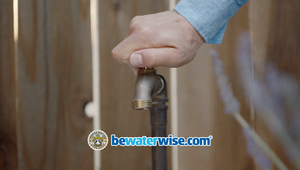
Nicole Ellingson: How to Prepare for and Accept Criticism

The creative director at my first job out of art school - I won’t name names - could be pretty harsh when he gave criticism. This was back in the early 2000's when three-martini-lunches were pretty common. We all knew that a review after lunch meant he would have absolutely no filter.
We’d all come into the conference room, put our work up (we were still using print-outs back then) on the magnetic board, and step back. He’d come up to the wall, red pen in hand, nose to the work, and go over it line by line. While your colleagues looked on, he’d ask you pointed questions like “why is this here?” or “why did you put that there?” If you didn’t have a good answer, he’d lose it. He did not mince words or hide his feelings. If something was bad, he would mark it with a big red X and tear it off the wall.
A lot of people were intimidated by that, and I can’t say I enjoyed it (though I always tried to go first so I could hang back for the rest of the time without fear). Still, looking back on it, I realise what a great opportunity it was. I really grew up in that job. I realised that we were all working for the same end goal of being on strategy and creating something that had an impact. Knowing I had to be able to defend my work in a presentation like that made me more deliberate about what I was creating. I kept my rationale for all of my decisions in mind as I worked.
Some people would cry during their review. I came close to tears a few times, but now I am able to accept criticism without feeling defensive or defeated. This is a really important skill because there’s always more ways to grow. If you’re constantly defensive, you shut yourself off from growing. At some point, you’re going to have to let some of the criticism in, or you’re going to stagnate.
This is advice I try to give to those who are just starting their career. When you’re younger, you have all of this energy and ideas, and you should absolutely step out with confidence, but you also have to be humble in accepting criticism. You don’t always know everything, and your higher-ups may have insights you don’t have (especially if they interact with the client more than you do).
Now that I’m in a leadership position, I see the other side of the criticism equation as well. I realise that it’s my job to make sure I’m bringing people into the loop so they have all of the information they need to create their best work. But I also try to make sure my feedback is positive and constructive. As managers, we should champion what’s working versus always cutting people down. I don’t see a place in modern-day advertising for just tearing people apart.
That said, I do not resent my former creative director at all. It’s been 12 years since we worked together and over that time we have developed a really good relationship. I admire him as a great creative and strategic thinker, and he has supported me in my career (when I started my own company years ago, he came to my opening). And over these years, he has invited me to a number of those martini lunches. I like my martinis dirty, by the way.
- Nicole Ellingson, creative director, Quigley-Simpson













